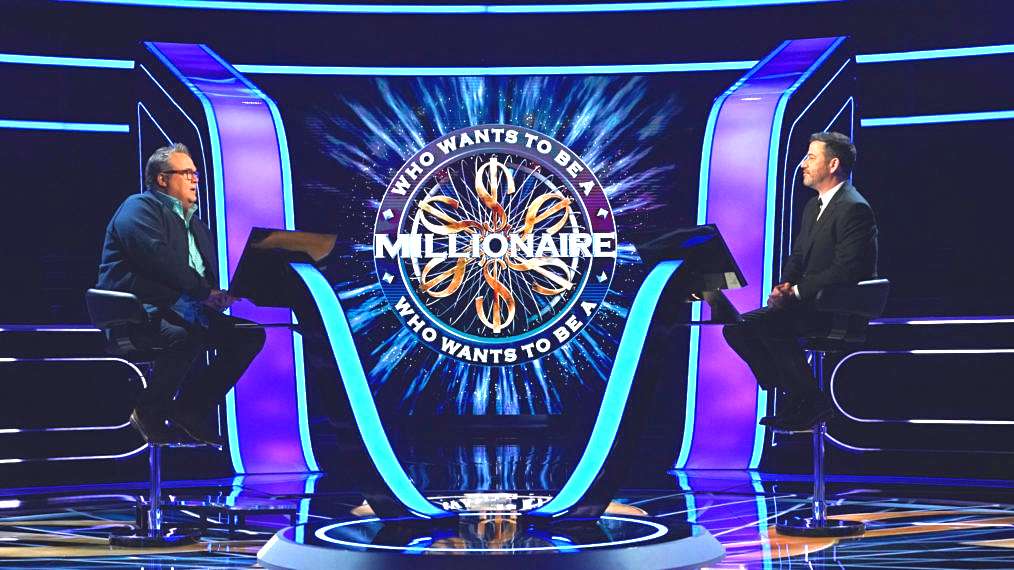Game shows have been a staple of television programming for decades, captivating audiences with their high stakes, exciting challenges, and big cash prizes. But have you ever wondered Where Game Shows Get Their Money? How do they afford to give away thousands, or even millions, of dollars in prizes every episode?
In this blog post, I’ll take a closer look at the economics of game shows and explore the various sources of funding that make these popular programs possible.
So, if you’re curious about the financial side of your favourite game shows, read on!
Revenue Generation in Game Shows
Game shows get their money to fund prices through various means, including advertising, sponsorships, and syndication rights. Let’s explore each of these strategies in more detail.
Advertising
Advertising is one of the primary revenue sources for game shows. Advertisers pay to have their products or services promoted during commercial breaks or as part of the show itself.
Game shows typically have a captive audience, making them an attractive platform for advertisers.
Sponsorships
Sponsorships are another way that game shows get their money to fund prices. Sponsors provide funding in exchange for exposure during the show.
This exposure can take the form of product placement or branding on the set or in promotional materials.
Ad Revenue
Game shows also generate revenue through ad revenue.
Networks sell commercial spots during the show to advertisers, and the revenue generated from these ads is used to fund the production of the show.
Commercial Breaks
Commercial breaks are a key part of game shows, and they provide an opportunity for advertisers to reach a captive audience.
Networks typically sell commercial spots during these breaks, and the revenue generated from these ads is used to fund the production of the show.
Syndication
Syndication is another way that game shows generate revenue.
Networks sell the rights to air the show to other networks, and the revenue generated from these deals is used to fund the production of the show.
Prizes and where all this prize money comes from
One of the most common ways game shows fund their prizes is through advertising revenue.
Game shows attract a large audience, which makes them an attractive advertising platform.
Companies are willing to pay a premium to advertise their products during popular game shows, and a portion of this revenue is used to fund the prizes.
Another way game shows fund their prizes is through product placement.
Game shows often feature products from sponsors, and the sponsors pay a fee to have their products featured on the show.
This fee is used to fund the prizes.
Syndication rights are another way game shows fund their prizes. Game shows that are popular can be syndicated to other networks, which means the original network can earn additional revenue.
This additional revenue can be used to fund the prizes.
Licensing fees are also used to fund game show prizes. Game shows can license their format to other countries, and the licensing fees can be used to fund the prizes.
Finally, some game shows generate revenue through merchandise sales. Game shows often have branded merchandise, such as T-shirts, hats, and mugs, which fans can purchase.
The revenue from these sales can be used to fund the prizes.
Famous Game Shows and their Earnings
Game shows have been around for decades, and some of them have become household names. Here are a few examples of famous game shows and their earnings:
Who Wants to Be a Millionaire?

Who Wants to Be a Millionaire? is one of the most popular game shows of all time. The show’s format involves contestants answering a series of multiple-choice questions to win a cash prize of up to $1 million.
The show has been adapted in various countries and languages across the globe and has earned a significant amount of money in ad revenue.
According to The List, a 30-second commercial spot during the show costs about $100,000, and there are about 14 commercials in a 30-minute episode.
This means that the show earns about $1.4 million in ad revenue per episode, without even taking reruns into account.
Wheel of Fortune

Wheel of Fortune is another popular game show that has been on the air for over 40 years. The show’s format involves contestants spinning a wheel to determine the value of the letters they guess in a word puzzle.
The show has earned a significant amount of money in ad revenue over the years. According to The List, a 30-second commercial spot during the show costs about $100,000, and there are about 16 commercials in a 30-minute episode.
This means that the show earns about $1.6 million in ad revenue per episode, without even taking reruns into account.
Jeopardy!

Jeopardy! is a quiz show that has been on the air for over 50 years. The show’s format involves contestants answering questions in various categories to win money.
The show has earned a significant amount of money in ad revenue over the years.
A 30-second commercial spot during the show costs about $75,000, and there are about 10 commercials in a 30-minute episode.
This means that the show earns about $750,000 in ad revenue per episode without even taking reruns into account.
The Price is Right
The Price is Right is a game show that has been on the air for over 60 years. The show’s format involves contestants guessing the prices of various items to win cash and prizes.
The show has earned a significant amount of money in ad revenue over the years. According to The List, a 30-second commercial spot during the show costs about $80,000, and there are about 10 commercials in a 30-minute episode.
This means that the show earns about $800,000 in ad revenue per episode without even taking reruns into account.
Impact of Advertising and Promotion
Game shows are a popular form of entertainment that attracts a large audience. Advertisers and sponsors are aware of this and are willing to pay top dollar to reach these engaged audiences.
Advertising is one of the primary ways in which game shows generate revenue. With the rise of digital advertising, game shows can now reach a wider audience than ever before.
Promotion is another way in which game shows generate revenue. Promotions such as product placements and sponsorships can help to offset the costs of producing the show.
For example, a car manufacturer may sponsor a game show and provide the cars that are given away as prizes. In return, the manufacturer gets exposure to a large audience.
Branding is also an important aspect of game shows. Many game shows have become household names, and the brand recognition that comes with this can be valuable to advertisers.
By associating their products with a popular game show, advertisers can increase brand awareness and reach a wider audience.
In-game advertising has also emerged as a novel advertising channel and an essential source of inspiration.
Studies have shown that in-game ads can have a significant impact on customer inspiration states (inspired-to and inspired-by) to take action.
Pop-up ads are a popular form of in-game advertising and can be used to promote a wide range of products and services.
Other Sources of Income
Aside from advertising, product placement, licensing fees, syndication rights, merchandise sales, and pay-per-view, game shows have other sources of income that help them generate revenue. One of these sources is reruns.
When a game show becomes popular, networks may decide to air it again, either in its entirety or just specific episodes.
Reruns can be a great way to generate income, as networks can sell advertising space during these broadcasts.
Additionally, reruns can help keep a game show relevant and increase its fan base.
Another source of income for game shows is profits. Game shows are relatively inexpensive to produce, especially when compared to other types of television programming.
As a result, game shows can generate significant profits for networks and production companies.
These profits can come from a variety of sources, including advertising revenue, licensing fees, and merchandise sales.
Frequently Asked Questions
Where do game shows get the money to give away?
Game shows get the money to give away from various sources. One of the main sources is advertising revenue. Game shows charge advertisers a premium to advertise during their show. For example, a show like “Who Wants to Be a Millionaire?” charges about $100,000 for one 30-second commercial spot. In a 30-minute show, there are about 14 commercials. A bit of quick math reveals a profit of $1.4 million in ad revenue per episode without even taking reruns into account. This money is then used to fund the prize money.
Where do game shows get money to pay contestants?
Game shows get the money to pay contestants from various sources. Some game shows pay for the prizes themselves, while others rely on sponsors or advertisers to fund the prizes. The money for the prizes may also come from the network or production company that produces the show.
Do game shows pay for hotels?
It depends on the game show. Some game shows pay for the contestants’ hotel accommodations, while others do not. It is best to check with the specific game show for more information.
How much of game show money do you actually get?
The amount of game show money you actually get depends on the game show and the prize structure. Some game shows pay out the entire prize in cash, while others pay out a portion of the prize in cash and the rest in merchandise or trips. It is important to read the rules and regulations of the specific game show to understand the prize structure.
Do game show contestants get paid if they lose?
It depends on the game show. Some game shows pay contestants for their time and travel expenses, regardless of whether they win or lose.
Others only pay contestants if they win. It is important to read the rules and regulations of the specific game show to understand the payment structure.
How does Deal or No Deal make money?
“Deal or No Deal” makes money through advertising revenue and product placement. The show charges advertisers a premium to advertise during their show, and they also feature product placements throughout the show. Additionally, the show charges a licensing fee to international versions of the show.
You might also like: Where do nonprofits get money to pay employees?


